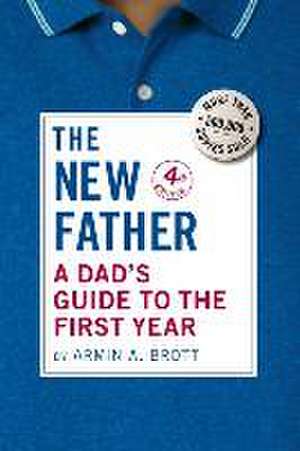The New Father: The New Father
Autor Armin A. Brotten Limba Engleză Paperback – 21 mai 2024
| Toate formatele și edițiile | Preț | Express |
|---|---|---|
| Paperback (1) | 95.66 lei 3-5 săpt. | |
| Abbeville Press – 21 mai 2024 | 95.66 lei 3-5 săpt. | |
| Hardback (1) | 145.76 lei 3-5 săpt. | |
| Abbeville Press Inc.,U.S. – 15 apr 2024 | 145.76 lei 3-5 săpt. |
Preț: 95.66 lei
Nou
Puncte Express: 143
Preț estimativ în valută:
18.31€ • 19.90$ • 15.39£
18.31€ • 19.90$ • 15.39£
Carte disponibilă
Livrare economică 01-15 aprilie
Preluare comenzi: 021 569.72.76
Specificații
ISBN-13: 9780789214867
ISBN-10: 0789214865
Pagini: 336
Dimensiuni: 151 x 227 x 25 mm
Greutate: 0.44 kg
Ediția:4th edition
Editura: Abbeville Press
Seria The New Father
ISBN-10: 0789214865
Pagini: 336
Dimensiuni: 151 x 227 x 25 mm
Greutate: 0.44 kg
Ediția:4th edition
Editura: Abbeville Press
Seria The New Father
Notă biografică
Armin A. Brott is a nationally recognized parenting expert and the author of ten critically acclaimed books for fathers, including The New Father: A Dad's Guide to the First Year and The New Father: A Dad's Guide to the Toddler Years, 12-36 Months. He also writes a syndicated newspaper column, Ask Mr. Dad, and hosts a weekly radio show, Positive Parenting. To learn more, visit his website, mrdad.com.


